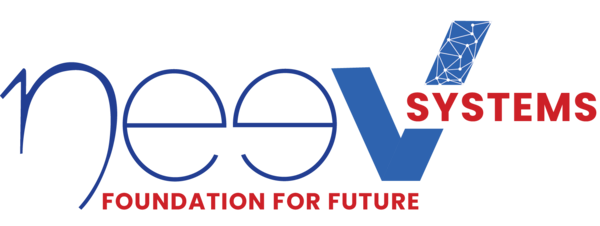Executive Summary
This comprehensive blog explores the transformative potential of AI-powered ERP systems. An AI-driven ERP system offers significant benefits for businesses seeking to improve efficiency, enhance decision-making, and gain a competitive edge.
With AI and its capabilities, businesses can automate routine tasks, optimize processes, and gain valuable insights. Dive in and explore the key benefits and case studies of AI-driven ERP, along with the implementation roadmap and future trends.
Key Takeaways
- AI-powered ERP systems offer numerous benefits, including improved efficiency, enhanced decision-making, and optimized operations.
- Successful AI-ERP implementation requires a well-structured roadmap that includes business needs assessment, solution selection, pilot testing, and scalable deployment.
- Key AI capabilities in ERP include predictive analytics, natural language processing, machine learning, and robotic process automation.
- Future trends in AI-ERP integration include explainable AI, hyperautomation, augmented intelligence, cross-platform AI capabilities, and IoT integration.
Spreadsheets and paper records? In 2024? That’s like showing up to a Formula 1 race with a horse and buggy.
Sure, spreadsheets worked when operations were simpler. But today, you’re juggling a hundred moving parts, and that old approach isn’t cutting it.
ERP systems gave us speed and efficiency, but AI-powered ERPs? They’re playing an entirely different game. With predictive analytics that knows what’s coming before you do, AI turning mountains of data into bite-sized, actionable insights, and robotic automation handling repetitive tasks, your team can actually focus on growth.
And it’s all accessible anytime, anywhere. Whether you’re in the office or on your phone, you’ve got real-time control at your fingertips. Your competitors? They’ve already left the old tech in the dust, making decisions faster and smarter with AI.
The future is AI-powered, and if you’re still managing operations like it’s 2010, it’s time to step up.
AI Capabilities in Modern ERP
Based on a recent analysis, around 55% of employees across various countries use generative AI at least once a week in their daily tasks. This underscores the transformative impact of AI and cloud technologies on business operations, including ERP systems.
Modern ERP systems are increasingly incorporating AI capabilities to improve efficiency and decision-making. Here are some key AI capabilities found in contemporary ERP systems:

Predictive Analytics
AI-powered algorithms can analyze historical data to identify patterns and trends, facilitating ERP systems to forecast future outcomes. This capability is valuable for demand forecasting, reduced stockouts, better inventory management, and financial planning.

Natural Language Processing
NLP allows ERP systems to understand and respond to human language, making it easier for users to interact with the system. It can extract information from unstructured data, such as contracts, invoices, and emails, streamlining processes and improving data accuracy.

Chatbots and Virtual Assistants
With the references taken from NLP, AI-powered chatbots and virtual assistants can provide real-time support to employees and customers, answering queries and resolving issues efficiently. For example, it can help with self-service portals for everyday HR tasks, such as answering questions about benefits, time off requests, or company policies.

Robotic Process Automation

Cognitive Automation
Cognitive automation combines AI, machine learning, and RPA to automate complex tasks like customer service, contract analysis, and risk assessments, that might require human judgment and decision-making.

Image Recognition
Also known as computer vision, image recognition analyzes visual data, such as scanned documents or videos, to extract valuable information from invoices, receipts, or purchase orders.

Voice Commands
Voice commands offer a convenient and hands-free way to interact with ERP systems. It can be helpful, especially for employees who remain busy or working in environments where typing is impractical.
The Benefits of AI in ERP Systems
AI-driven ERP systems can deliver tangible results across various departments and functions. Let us look into some benefits of AI usage in ERP systems:
Improved Accuracy
AI-enabled ERP systems significantly reduce human error by automating tasks and using advanced data analytics. These systems can quickly and accurately analyze vast datasets that would be overwhelming for humans to understand.
Business process optimization
Agile businesses adapt to rapidly changing market conditions and unexpected events. AI-powered ERP systems enable organizations to optimize their business processes, ensuring they operate efficiently. Real-time insights and analytics provided by AI help businesses identify bottlenecks, streamline workflows, and respond to challenges promptly.
The success story of Discover Financial Services, the third-largest credit card brand in the United States, explains the context even better. In 2019, their seven on-premises legacy systems were slow, inaccurate, and complex. To address these issues, Discover chose Oracle Fusion Cloud ERP and integrated it with Oracle Fusion Cloud Enterprise Performance Management. This consolidation helped employees effectively manage expenses, reduce costs, and improve access to financial information. During the COVID-19 pandemic, the integrated solution proved valuable, enabling Discover to access accurate planning projections and conduct cost analysis quickly.
Employee productivity
One significant benefit of AI in ERP is its ability to automate routine tasks. By automating processes like invoice processing and order management, AI frees employees to focus on more strategic and creative work. This elevates employee productivity and promotes a more fulfilling and engaging work environment.
Enhanced security
AI plays a crucial role in safeguarding ERP systems from security threats. AI-enabled systems can continuously monitor networks and applications for anomalies, identifying potential security breaches faster and more accurately than human employees. This proactive approach significantly enhances an organization’s overall security posture.
Predictive maintenance
AI-driven ERP systems enable predictive maintenance by analyzing real-time equipment data and identifying patterns that indicate potential failures before they occur. This proactive approach reduces downtime, minimizes costly repairs, and ensures smoother operations. By integrating predictive maintenance into ERP, businesses can streamline maintenance workflows, ensure optimal asset performance, and increase productivity across all departments.
Demand forecasting and spending management
AI algorithms can accurately forecast demand for products or services, enabling businesses to optimize inventory levels and manage spending effectively.
The Wonderful Company, a food and beverage giant, met challenges while managing its expansive production network with international brands. Their complex on-premises legacy systems hindered efficiency and increased costs across finance, planning, and supply chain. They implemented Oracle Cloud SCM and ERP for their most demanding division-citrus to overcome this. Their agri-business successfully improved its ability to balance supply and demand using Oracle SCP. The company also automated its financial processes with Oracle Cloud ERP and significantly reduced financial planning time by over 35%.
Guided purchasing
AI-powered systems can provide real-time recommendations to guide purchasing decisions, ensuring your company gets the best deals and avoids unnecessary costs. ERP systems, powered by AI, can analyze historical data, market trends, and supplier performance to identify the most cost-effective and reliable options. Guided purchasing can also help streamline the procurement process, reduce manual effort, and improve compliance with company policies.
Anomaly detection
Anomaly detection can be applied to various areas within ERP systems, such as financial transactions, supply chain data, and customer behavior, providing valuable insights into potential risks and opportunities. AI-driven anomaly detection algorithms can identify deviations or unexpected patterns in data that may indicate fraudulent activity, errors, or other anomalies. Businesses can proactively address issues, prevent losses, and ensure data integrity by continuously monitoring data and flagging anomalies.
Process mining
AI-powered process mining tools can revolutionize how organizations understand and optimize their business processes. These tools can visualize workflows, identify bottlenecks, and uncover hidden inefficiencies by analyzing data logs. Process mining can also help identify opportunities for automation, enabling organizations to automate repetitive tasks and free up employees to focus on more strategic activities. Forebytes reports that AI-powered ERP solutions can automate mundane tasks and free up employees to focus on more strategic work, which results in improved delivery performance by 20-30%.
Order and supply chain management
AI can optimize order fulfillment processes, improve supply chain visibility, and reduce lead times, resulting in better customer satisfaction and reduced costs. In this context, it’s worth studying how Neev Systems helped a global manufacturing leader extract real-time insights from its Oracle ERP data. With Oracle ERP, HevoData, Tableau, and Snowflake integration, the client improved decision-making and gained visibility, scalability, and efficiency in supply chain and order management.
Cash flow automation
AI in ERP systems can extract data from invoices, verify accuracy, and streamline the approval process, reducing manual effort and accelerating payment cycles. Additionally, AI-powered predictive analytics can denote cash inflows and outflows, allowing businesses to optimize working capital and avoid cash shortages. This improved cash flow automation and visibility lead to better financial health and overall business performance.
Want to learn more about the possibilities of AI in your ERP system? Visit our website or schedule a call today!

Unlock the Potential of AI in ERP
Implementation Roadmap for AI-Driven ERP Systems
The market size for AI in ERP is projected to grow by around $853.4 million by 2033, up from $93.2 million in 2023. This means deploying AI into current systems can only give businesses greater advantages. However, implementing an AI-based ERP system requires a well-defined roadmap to ensure successful integration and optimization of business processes. Here’s a detailed breakdown of the key steps involved:
Step 1: Identify your pain points
Prioritize AI use cases that deliver significant impact and align with your business objectives, such as predictive maintenance, demand forecasting, or customer service automation.
Step 2: Data preparation
Adequate data preparation and quality are critical for successful implementation. Data collection involves gathering relevant information from various sources, such as ERP systems, CRM, and operational databases. Data cleaning and standardization ensure accuracy and consistency, eliminating errors and inconsistencies. Establishing governance policies in data and analytics further safeguards data quality, security, and compliance.
Step 3: Select a suitable AI technology
Once you’ve identified your business needs, the next step is to research and evaluate available AI-driven ERP solutions. Consider cost, scalability, flexibility, and the specific AI features offered. Evaluate the AI capabilities, including predictive analytics, machine learning, and natural language processing, to ensure the solution can deliver the desired benefits and support your business objectives.
Step 4: Conduct PoCs for AI
A proof of concept (PoC) is crucial to validate the potential benefits of AI integration and gain insights into its feasibility. Implement the PoC and evaluate its performance, measuring the impact on key performance indicators and assessing the alignment with your business objectives.
Step 5: Pilot Implementation
After completing the PoC, the next step is to proceed to the pilot implementation phase. Deploy the selected AI models into your ERP system on a limited scale to test their performance in a real-world environment. The pilot phase provides insights into the security transformation challenges and functional opportunities associated with AI integration, allowing you to refine your implementation strategy for a broader rollout. Continuously monitor the AI solutions, gather user feedback, and make necessary adjustments to optimize results.
Step 6: Deploy and scale the entire system
Building on the pilot’s success, gradually expand AI integration across your organization. Keep all your employees adequately trained and supported to use the AI-powered ERP system, and monitor the performance of AI solutions to gather feedback and make necessary adjustments to optimize results.
Step 7: Track and evaluate your ERP in every step
After successful deployment, your final task is to evaluate your system continuously. If you want to be irreplaceable in the business, track the ROI to assess the effectiveness of AI in achieving business objectives. Identify new opportunities for AI applications within your ERP system to drive further innovation. Stay updated on AI and ERP technologies to ensure your organization remains competitive in AI-driven solutions.
Future Trends in AI-ERP Integration
As AI continues to evolve, its integration with ERP systems will become more sophisticated and transformative. Some notable trends we anticipate to watch in the future can be:
Explainable AI (XAI): With AI models becoming more complex and sophisticated, it will become crucial to understand the logic behind their decisions. XAI will ensure transparency and accountability in AI-driven ERP systems. It will gain more insights into how AI models arrive at their conclusions to build trust in the technology and make more informed decisions.
Hyperautomation: The pursuit of higher efficiency and productivity will drive the adoption of hyperautomation, which involves integrating AI deeply into ERP software to automate a wide range of business processes. This will significantly improve operational efficiency, cost reduction, and error prevention.
Cross-Platform AI Capabilities: To encourage more unified and cross-functional operations, AI capabilities will function across various ERP platforms. This will require the development of standardized AI frameworks and APIs that enable interoperability between different systems.
Internet of Things (IoT) Integration: Integrating IoT devices with ERP systems will provide a wealth of data to optimize operations and make data-driven decisions. IoT sensors can monitor equipment health, track inventory levels, and gather information about customer behavior, giving enterprises valuable insights into business processes.
Neev Systems- Your Partner in Strategizing ERP
AI-driven ERP systems are changing the narrative of how businesses operate. AI capabilities, such as predictive analytics, natural language processing, and machine learning, are becoming more prominent in decision-making, optimizing processes, and improving B2C connections.
However, implementing an AI-driven ERP system requires careful planning, data preparation, and a well-structured implementation roadmap. Neev Systems is a leading provider of AI-driven ERP solutions that can help your business harness the power of AI. With our expertise in Enterprise Application Services and its integration, we can guide you through the entire process, from assessing your needs to selecting the right AI-powered ERP solution and providing ongoing support.
Are you seeking a strategic advantage through AI-driven ERP? We can help you achieve your goals! Contact Neev Systems today.

Elevate Your Business with AI-Powered ERP

Ashish Goswami
Ashish has over 20 years of global IT services experience in Oracle Applications and Oracle Fusion Cloud. Throughout his career, he has built successful, long-lasting partnerships with customers, driving transformational IT initiatives across various industries. In his current role, he leads the Oracle practice at Neev Systems, overseeing large teams, managing global support, driving multiple service lines, and spearheading new technology adoption and automation efforts. His passion lies in delivering exceptional results and ensuring customer satisfaction.

Srikanth Chintapally
With over 13 years of experience, Srikanth designs innovative Salesforce solutions to enhance efficiency and foster customer relationships. He leads projects end-to-end, tailoring strategies to client needs. Srikanth is dedicated to driving digital transformation and maximizing CRM potential.


